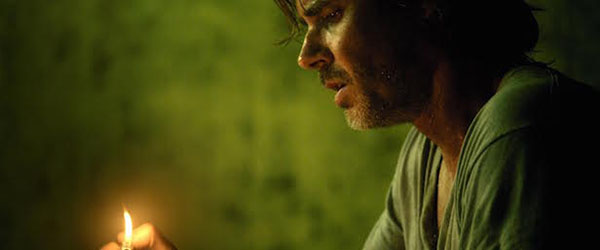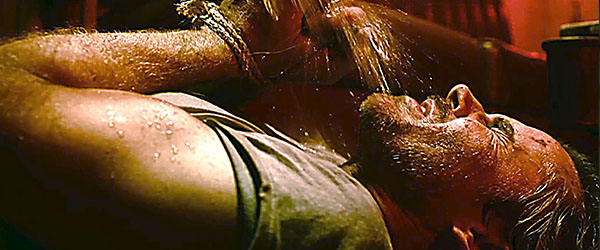Whether it’s the freshman cinephile making their feature debut or the veteran director who’s been at it for two decades, anyone dedicated enough to stick around and make filmmaking a long-term career will tell you that sometimes you’ve just got to get up, get out there and do it yourself. Indie filmmaker Tim McCann is no stranger to doing things his own way; putting his blood, sweat and tears into making sure his vision isn’t compromised. He’s been a renegade and innovator since completing his feature debut, Desolation Angels in 1995. That film, the first of McCann’s many gritty, realistic character studies, earned the director a Film Independent Spirit Award nomination in the Someone to Watch category, an experience he recalls as “a great honor,” adding “If a creative person can experience a time in their life [like that] that can galvanize their own belief and confidence in what they do, that is what carries us through the day, and that is what we build our life on.” McCann has a fondness for all things gritty. His films they tend to have a documentary feel that accentuates the believability of the situations his characters find themselves in. This is especially true for his latest film, All Mistakes Buried, now playing in select theaters and available On Demand (specifically the “In Theaters Now” section). The gripping character study follows Sonny (played by Sam Trammell), a struggling drug addict attempting to repair his fragile marriage.
One of the ways McCann gets at such authentic performances is by casting local talent, letting real-life individuals get in front of the camera, often with no prior acting experience. Doing so, he says, results in performances from “very distinct individuals with compelling personas, who [are] able to get into the world of the scene without inhibitions, and without being self conscious.” It was on the set of his film White Rabbit in 2013 that McCann was working with both amateur talent as well as professional actors, including True Blood alum Trammell. McCann, Trammell and producer Shaun Sanghani all cliqued immediately and it wasn’t long before they were collaborating on a second project together. In fact, Sanghani says they started writing a script in April and were shooting by the end of July. The three amigos joined forces to develop an idea Sanghani had gotten while working on Rabbit. McCann took to writing the first draft, which was then sent to Trammell, and over the course of a few weeks all three put their own spin on the characters and story. Sanghani funded the entire project out of pocket, and advises filmmakers that if an indie producer is going to do something like that for the sake of a labor of love, to at least make sure you’re going to break even. That being said, the film was shot on a microbudget–cast and crew worked long hours for a whirlwind 12-day shoot in the blazing Louisiana heat. It was the type of film set that boasted craft service meals cooked by family, lodging with friends and pulling in favors from the guy you know who has an RV. Perhaps the most fascinating aspect of the film was the decision to hold a local casting call in an effort to not only keep the cost of paying actors down, but to ensure that authenticity and realism was captured from the amateurs who were chosen.
In the film, Trammell’s character is a man who has seemingly lost everything after his marriage and life is destroyed by drug addiction, inspired by a friend of Sanghani’s who had survived a very serious problem with crack cocaine, nearly dying several times throughout the course of his dark days. Trammell was able to meet with this man, who explained in detail what it felt like to be an addict, and even gave him some tips on how to hit the crack pipe. As for the drug dealers, addicts and prostitute cast in supporting roles, McCann and Sanghani took a bold risk in casting real-life individuals who fit the profile in the most literal sense. Sanghani decided to track down an old high school classmate whom he didn’t know too well, but whom he suspected would make for one hell of a villain and who likely had access to the real-life dealers and addicts. When holding a casting call for these individuals, producer/writer said, “They were scared to get out of their cars to come in and read because they thought it was a bust. They thought they were all going to get arrested.” Unfortunately, several of these cast members did end up getting incarcerated before the film was ready to be seen, but luckily not during the film’s 12-day shoot. For Trammell, acting alongside men and women who lived this lifestyle was an experience he found completely rewarding, saying, “It’s a dream come true for any actor to get to share a scene with an individual who has actually experienced it.” Plus a large percent of his performance was improvised, a method he thoroughly enjoys but doesn’t get to do as much as he’d like. All Mistakes Buried captures the spirit of indie filmmaking on all levels. It goes to show that when you find other creative collaborators in the industry who are as passionate and fearless as you, it suddenly becomes possible to bend the rules and improvise your way to a finished film. What Sanghani suggests as the greatest formula for success is for the entire cast and crew to all genuinely want to be there—no complaints of long hours or hot weather, and no paychecks with six and seven figures. All that’s needed is an army of cinephiles and filmmakers who love what they do and just want to continue making films that are brave, innovative and introduce audiences to characters they may not have met before.
For more information about Film Independent, please visit our website or subscribe to our YouTube channel. Learn how to become a Member of Film Independent by clicking here. Chris Lombardi / Film Independent Blogger

